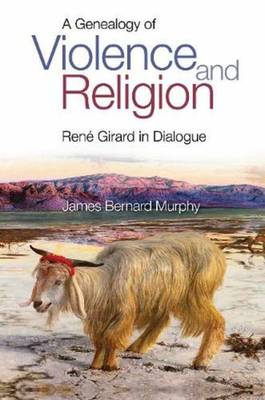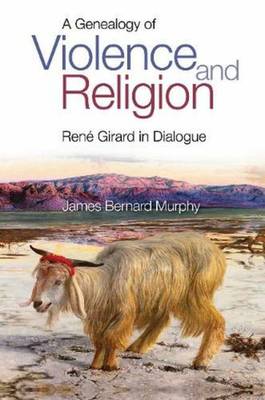
- Afhalen na 1 uur in een winkel met voorraad
- Gratis thuislevering in België vanaf € 30
- Ruim aanbod met 7 miljoen producten
- Afhalen na 1 uur in een winkel met voorraad
- Gratis thuislevering in België vanaf € 30
- Ruim aanbod met 7 miljoen producten
Zoeken
A Genealogy of Violence and Religion
Rene Girard in Dialogue
James Bernard Murphy
Paperback | Engels
€ 34,95
+ 69 punten
Omschrijving
Why are religious rituals, symbols, and rhetoric so full of images of blood, sacrifice, and death? Why does religious fervor so often lead to Holy War, Crusade, and Jihad? No wonder many people assume that religion tends to give rise to violence. But what if it were the other way around? What if violence actually gave rise to religion? So argued the French literary theorist and anthropologist Rene Girard (1923-2015). Described as the Darwin of the human sciences, he was elected to the French Academy in 2005 for his seminal theories of sacred violence. Girard argued that religious practices function to sublimate, regulate, and discharge human violence in controlled rituals. Where does violence come from? According to Girard, from the social nature of human desire itself. We desire things only because others desire them, so desire is inherently rivalrous, leading to violent conflict. But if a scapegoat can be found, then this war of all against all turns into a war of all against one. Social order, claimed Girard, stems from the unity of a lynch mob. Religious rituals then serve to commemorate the primordial murder of the scapegoat. What are we to make of Girards provocative claims about human desire, violence, scapegoat killings, and religion? Political philosopher James Bernard Murphy presents here a series of sharp and witty dialogues in which Girard attempts to defend his ideas against attacks by rival theorists, among them, Sigmund Freud, William James, Simone Weil, Elias Canetti and Joseph de Maistre. Whatever we might think of his answers, Girard asks challenging, unsettling questions. In these illuminating and lively exchanges, Girard squares off with the titans of social theory.
Specificaties
Betrokkenen
- Auteur(s):
- Uitgeverij:
Inhoud
- Aantal bladzijden:
- 160
- Taal:
- Engels
Eigenschappen
- Productcode (EAN):
- 9781845199289
- Verschijningsdatum:
- 11/04/2018
- Uitvoering:
- Paperback
- Formaat:
- Trade paperback (VS)
- Afmetingen:
- 150 mm x 226 mm
- Gewicht:
- 249 g

Alleen bij Standaard Boekhandel
+ 69 punten op je klantenkaart van Standaard Boekhandel
Beoordelingen
We publiceren alleen reviews die voldoen aan de voorwaarden voor reviews. Bekijk onze voorwaarden voor reviews.











